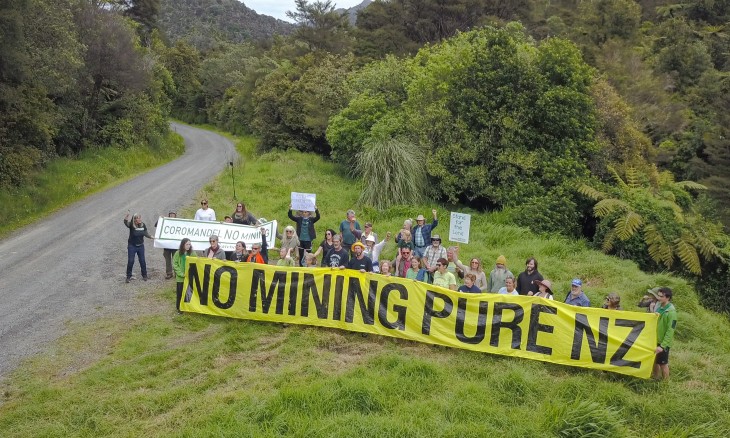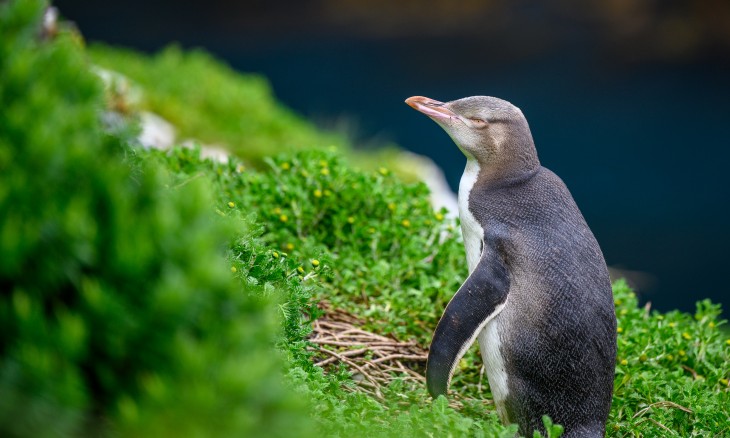Rats, stoats and possums destroy our native wildlife. Help to remove pests from the 3100 ha Hibiscus Coast, so native species can flourish.
The Hibiscus Coast lifestyle has a strong connection to nature. We are part of it, we are out there enjoying it together. Bird-song filled bush walks at Shakespear, exercising at Orewa Estuary, boating in the Hauraki Gulf, relaxing on beaches. We love it and want to protect it, but…
WHAT IF THE FORESTS FELL SILENT?
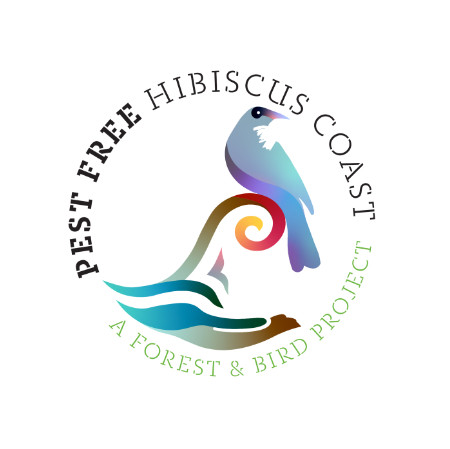
Without predator control, RATS, STOATS and POSSUMS will continue to destroy our native wildlife and ruin our wild places for future generations. But together we can prevent that from happening. As a community we are the next line of defence for Shakespear Open Sanctuary, Orewa Estuary and many other important areas of native bush remaining on the coast.
Our Vision
A safe, healthy habitat for native plants and animals transitioning from sanctuaries at Tiritiri Matangi and Shakespear, along the peninsula and surrounding areas, enjoyed and cared for by the community.
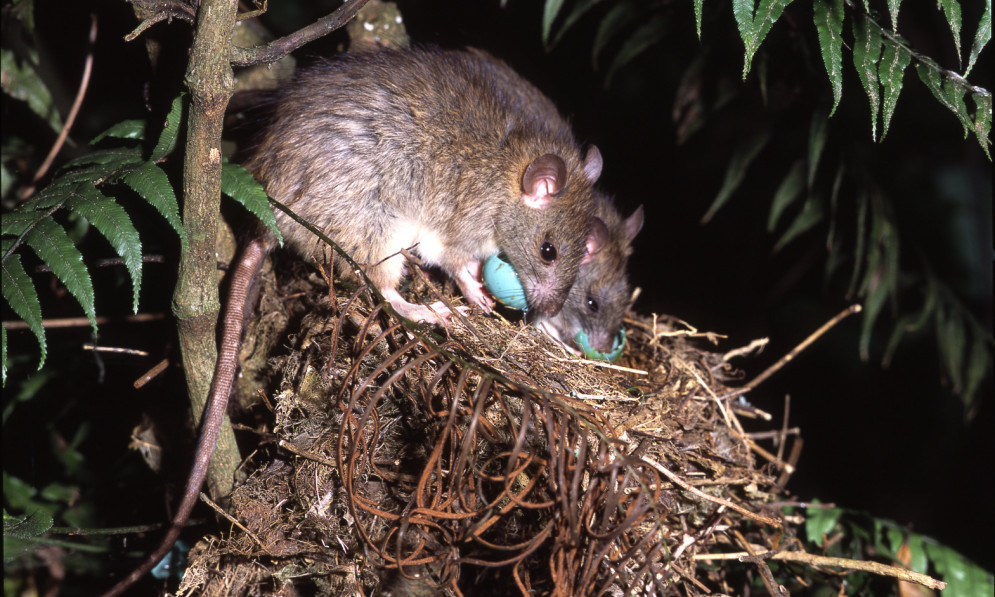
Photo credit: Nga Manu images
Why control pest animals?
Introduced predators kill more than 100 million native birds, eggs and chicks every year across the country. This devastation happens everywhere, including right here in your backyard. These pests don’t belong here and they have to go before it’s too late, we have a choice, it’s the pests versus the birds, lizards and insects that make the Hibiscus Coast so special. Something will die.
More than 74% of native birds and 84% of native lizards are threatened with or at risk of extinction in New Zealand. Many of these are found nowhere else in the world.
Under the guidance of our project team, our volunteers contribute over 5000 hours each year to managing a network of 1300 traps and bait stations to control rats, stoats, weasels, possums and hedgehogs across the Hibiscus Coast area. Nature needs you to join them and trap in your backyard.
Rats
- Eat native birds, eggs, chicks, snails, lizards, weta, larvae, and the seeds, fruit and flowers of native plants and trees.
- Compete with native species for food.
- Breed VERY quickly
- Spread diseases such as leptospirosis, which can be transmitted to humans, as well as contaminating water, food and household surfaces.
- Cause millions of dollars of damage to property each year. They chew through pipes and electrical cables, causing flood and fire.
Possums
Ten possums eat one tonne of bush every year
- Cause significant damage to forests, killing native trees
- Compete with native species for seeds and fruit.
- Eat native birds, eggs and chicks as well as native insects.
- Damage fruit trees and gardens and pose a threat to farming as carriers of bovine tuberculosis.
Stoats - kiwi killers
- Voracious predators of ground nesting birds, chicks and eggs.
- Agile climbers and swimmers that travel great distances.
- Without protection, most kiwi chicks are killed by stoats.
More than 50 species of native birds have been seen on the coast and 20 of these are categorized as at risk. Bellbirds (korimako) visit people’s gardens and are even known to be breeding here. Saddlebacks (tīeke) and North Island robins (toutouwai) have been introduced to Shakespear Open Sanctuary and sometimes fly outside the predator proof fence into neighbouring properties.
Many different native lizards live on the coast, including the ornate skink and green gecko, and we also plan to survey the area for rare native bats.
Our story
The Hibiscus Coast is a perfect place to eradicate pests, because the peninsula can be defended against invasions.
The project started in 2011, after the predator proof fence was installed at Shakespear, with the first trap line being installed in 2014 at Karaka Cove reserve. The initiative was founded by Pauline Smith who has since received a Forest & Bird Tī Kouka award for her incredible efforts. The project now extends across a landscape scale, covering 3100 hectares of the Hibiscus Coast. We can already see the benefits of controlling predators, because native plants and birdlife are flourishing – our annual bird surveys are showing more exciting results each year. However, the threat is still there and we need your help.
From 2014-2019 the project focused on installing predator control lines in parks and reserves in partnership with Auckland Council, as well as some large areas of public land, such as Gulf Harbour and Whangaparaoa golf courses. Until 2019 we managed trap lines and other conservation activity at Orewa Estuary as its own project, supported by Hibiscus and Bays Local Board. However this year we have incorporated it into Pest Free Hibiscus Coast to strengthen the connections with the rest of our predator control work and community engagement. All lines are made up of secure bait stations and traps, and are maintained by trained volunteers.
In 2019 we recruited our first paid project staff, Jenny Hanwell as Project Manager and Rhiannon Thomas as Field Officer. A Project Plan has been written to help us move from predator control to eradication – and that involves the whole community. View our full project timeline here.
Our incredible volunteers contribute over 5000 hours each year to this project and carry out a range of roles in addition to trapping, such as helping with events, administration and communications.
Get more involved
We currently have an amazing team of 150 volunteers working with us and the project couldn’t run without them. We are always looking for people to:
- look after predator control lines on parks
- help with events
- support neighbourhood groups.
- survey birds and lizards
- control pest plants
There is a role for everyone, whether you have a little or a lot of time to give. We provide full training and support and look forward to welcoming you to our team.
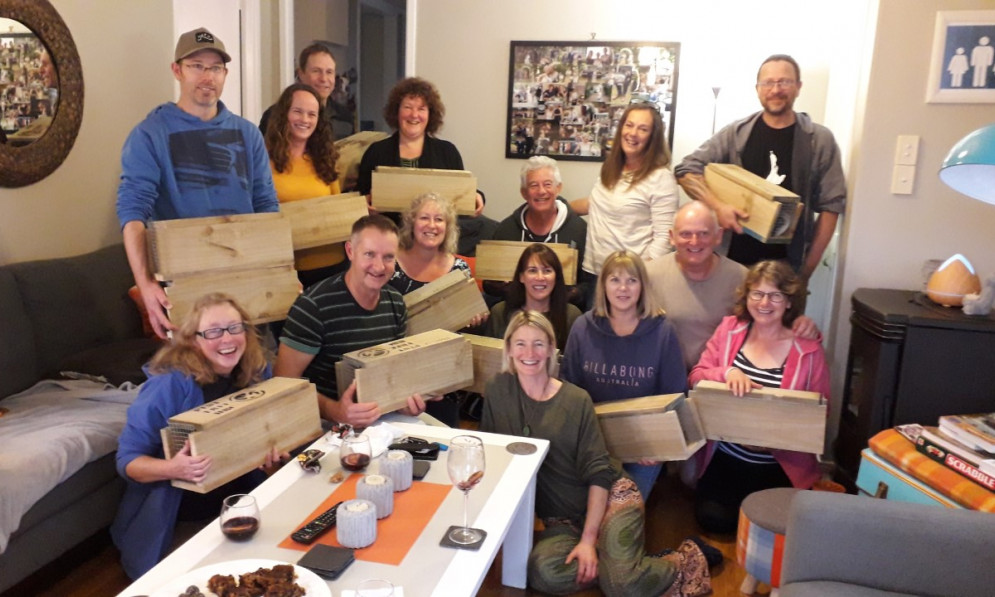
Business sponsorship
Ask us how you can help protect the Hibiscus Coast environment. Businesses on the coast have already started to support us by donating time, resources, event spaces and funding through running special campaigns and events, we’d love you to join them.
Our Hub Model
In addition to expanding the number of trap lines on reserves, we are aiming for at least 1 in 4 households to be trapping in their backyards and more and more people are joining us, with 700 people starting trapping between December 2019 and August 2020.
To make our backyard trapping programme more focused and effective, we have split the 3100ha project area into 12 “Hubs”. Each area includes 1500-2000 properties, and each year we plan to recruit new Hub Activators and a network of volunteers to drive action in these areas. People involved in backyard trapping record the locations of their traps and what they catch, so we know the impact we are having and can gain an insight into what’s happening with predator populations.
We want as many people as possible to get involved. We’re all responsible for looking after nature and together we can make a massive difference.
Join us to bring the community together towards a common goal that can be sustained over time.
Work with Schools
We also work with schools from primary through to college level, and offer educational talks and trap box building. The main purpose of this is to enable more families to start trapping in their backyards and to inform and enthuse our young people in conservation and how they can make a difference. Several schools also have trap lines on their school grounds maintained by the students.
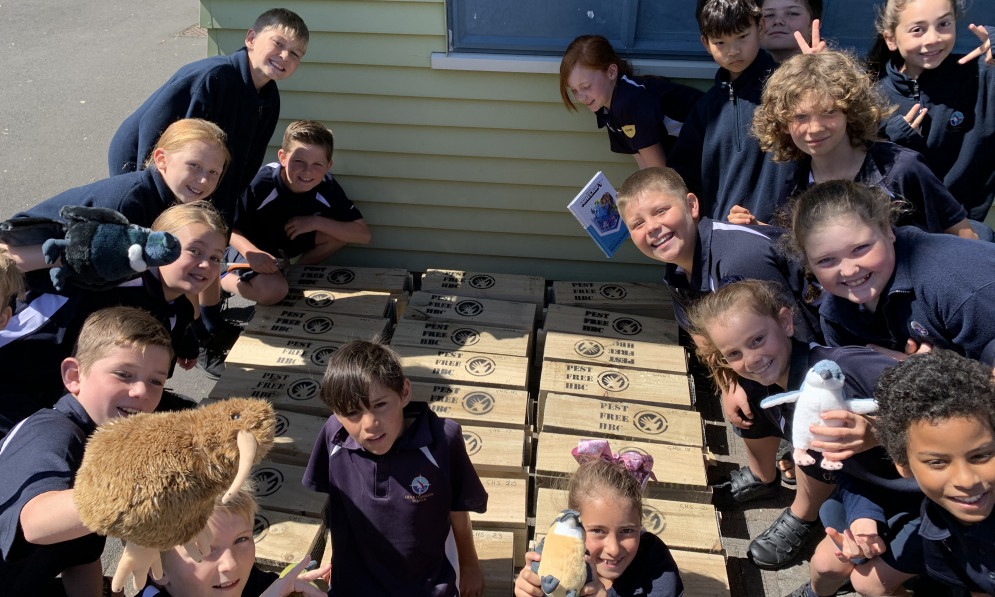
Pest Free Hibiscus Coast is supported by:
Auckland Council, Foundation North, Hibiscus and Bays Local Board, Lotteries Environment & Heritage, Department of Conservation.
We would also like to thank Gulf Harbour Country Club, Bunnings Warehouse, Gulf Harbour Marina and Hibiscus Matters for their ongoing support locally.
Support us
We also very much welcome donations to Hibiscus Coast Forest & Bird, and offers of fundraising events. We encourage you to become a member of Forest & Bird.
What can you do
For more information on how to take action click here.




